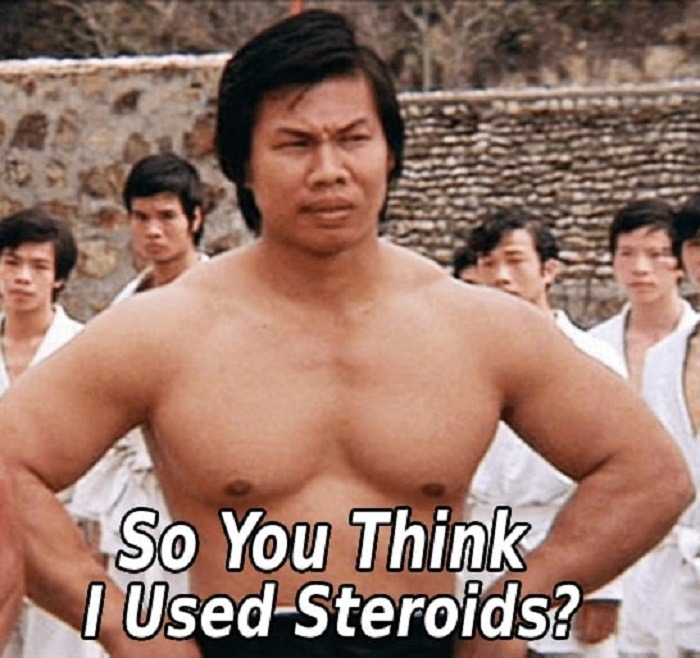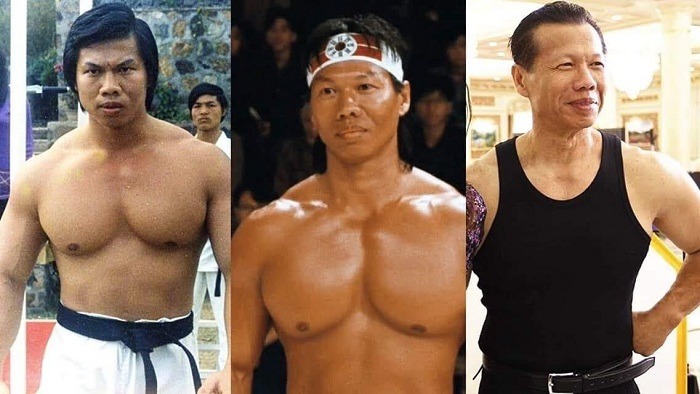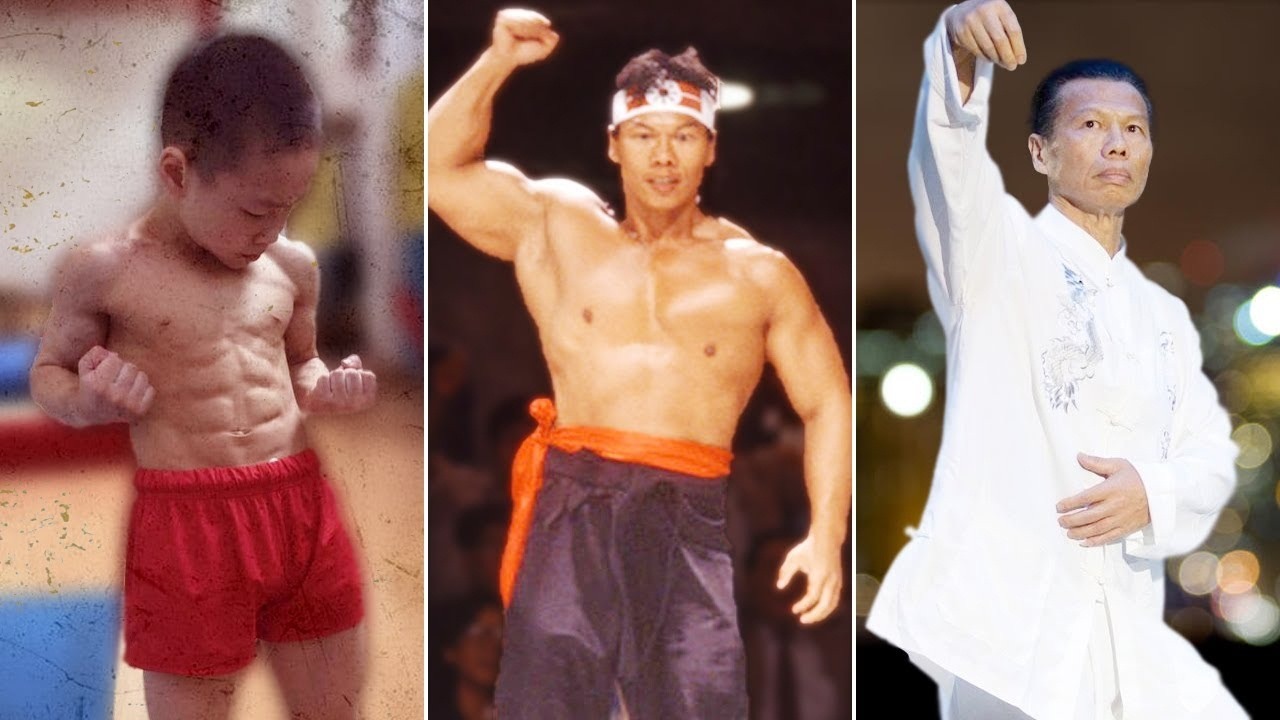Bolo Yeung Steroids
Contents
- 1 Bolo Yeung Steroids
- 2 Bolo Yeung’s Background
- 3 The Steroid Allegations
- 4 Yeung’s Response
- 5 The Culture of Bodybuilding and Steroids
- 6 The Evolution of Bodybuilding Practices
- 7 The Ambiguity of Evidence
- 8 The Broader Impact of Steroid Allegations
- 9 Cultural Influences on Body Image
- 10 The Human Element
- 11 Conclusion
- 12 Frequently Asked Questions (FAQs) about Bolo Yeung and Steroids
Bolo Yeung, born Yang Sze on July 3, 1946, stands as an iconic figure in the realms of both bodybuilding and martial arts cinema. Revered for his imposing presence and memorable performances, particularly in “Enter the Dragon” alongside Bruce Lee, Yeung’s remarkable physique has fueled persistent rumors and speculations regarding the use of steroids. In this comprehensive exploration, we will delve into the life, career, and controversy surrounding Bolo Yeung and steroids, examining the claims, counterarguments, and the broader landscape of performance-enhancing substances in the dynamic world of bodybuilding.
Don’t Miss: Were Steroids Part of Bruce Lee’s Workout & Training Plan?
Bolo Yeung’s Background
Understanding the controversy necessitates a closer look at Bolo Yeung’s background. Born in Guangzhou, China, Yeung’s journey into the world of martial arts and bodybuilding began at a young age. In the 1960s, he made a mark as a competitive bodybuilder, clinching numerous championships. His transition to acting saw him embodying formidable villains in martial arts films, earning him recognition and a dedicated fan following.
The Steroid Allegations

Central to the controversy surrounding Bolo Yeung is the skepticism regarding the natural attainment of his extraordinary physique. Critics argue that the level of muscular development showcased in films such as “Enter the Dragon” and “Bloodsport” exceeds the boundaries of what could be feasibly achieved without external assistance. This skepticism has led to widespread speculation about the potential use of steroids, a topic that has shadowed Yeung’s legacy.
Yeung’s Response
Yeung, in response to the persistent allegations, has consistently denied the use of steroids throughout his career. In various interviews, he attributes his impressive physique to disciplined training, a strict diet, and favorable genetics. Yeung emphasizes the importance of hard work and dedication in shaping his physique, downplaying the role of steroids in achieving his muscular build. However, as we navigate the complexities of the bodybuilding world, it becomes evident that such denials are not uncommon, raising questions about the transparency of the era in which Yeung rose to prominence.
The Culture of Bodybuilding and Steroids
To grasp the controversy, it’s imperative to delve into the historical and cultural context of bodybuilding. The use of steroids has been entrenched in the bodybuilding community for decades. Athletes, driven by the pursuit of an idealized physique and competitive pressures, have often turned to performance-enhancing substances. The blurred line between natural and enhanced achievements has been a hallmark of the industry, fostering an environment where suspicions arise even in the absence of concrete evidence.
The Evolution of Bodybuilding Practices

The landscape of bodybuilding has undergone significant changes over the years. In the 1960s and 1970s, when Bolo Yeung was actively involved in competitive bodybuilding, the use of steroids was not as regulated or scrutinized as it is today. Athletes had greater leeway in managing their training regimens and supplement intake without the stringent monitoring seen in contemporary sports. This lack of oversight complicates attempts to definitively assess the veracity of steroid use allegations against figures like Bolo Yeung.
The Ambiguity of Evidence
One of the primary challenges in unpacking the controversy surrounding Bolo Yeung and steroids lies in the ambiguity of evidence. Unlike modern athletes subject to rigorous drug testing, historical practices often lacked the same level of scrutiny. Without official records or conclusive medical examinations, the debate remains speculative. It’s important to acknowledge the difficulty in retroactively applying contemporary standards to an era where practices and regulations were different.
The Broader Impact of Steroid Allegations
The controversy surrounding Bolo Yeung is not an isolated case. Throughout the history of bodybuilding, numerous athletes have faced similar allegations. The impact of these accusations extends beyond the individuals involved, shaping public perception of the sport and contributing to the ongoing discourse on ethics, fairness, and the pursuit of physical excellence.
Cultural Influences on Body Image
Bolo Yeung’s career coincided with a period when societal expectations around masculinity and body image were evolving. The muscular, chiseled physique became a symbol of strength and virility, both on and off the screen. In this context, the pressure to conform to these ideals may have influenced athletes’ choices regarding performance-enhancing substances, further complicating the assessment of the ethics involved.
The Human Element
Bolo Yeung, beyond being a symbol of controversy, is a human being whose life and career extend far beyond the screen. Exploring his journey, the challenges he faced, and the dedication he brought to his craft provides a more nuanced understanding of the man behind the muscles. It invites reflection on the broader dynamics at play in an industry that demands physical excellence and the lengths individuals may go to meet those demands.
Conclusion
The controversy surrounding Bolo Yeung and steroids encapsulates the complexities of the bodybuilding world. As we navigate the historical, cultural, and personal dimensions of this debate, it becomes evident that arriving at a definitive conclusion is challenging. The blurred lines between natural and enhanced achievements, coupled with the lack of concrete evidence from the era in question, contribute to the enduring mystery surrounding Bolo Yeung’s physique.
The broader impact of steroid allegations on the culture of bodybuilding and societal perceptions of physical prowess cannot be understated. As we reflect on figures like Bolo Yeung, it prompts a broader conversation about the evolving standards of the industry, the ethics of performance enhancement, and the delicate balance between admiration for physical achievements and the potential costs involved.
In unraveling the controversy surrounding Bolo Yeung and steroids, we are confronted not only with questions about one man’s legacy but with an opportunity to critically examine the intersection of sports, entertainment, and the human pursuit of physical excellence. The journey into the heart of this debate is a testament to the complexities inherent in assessing the choices made by athletes in an industry where the boundaries between natural and enhanced achievements remain elusive.
Frequently Asked Questions (FAQs) about Bolo Yeung and Steroids
1. Was Bolo Yeung ever tested for steroids during his competitive bodybuilding years?
- No, there is no documented evidence of Bolo Yeung being subjected to steroid testing during his competitive bodybuilding career. Drug testing practices in the 1960s and 1970s were not as rigorous as they are today, making it challenging to definitively assess the use of performance-enhancing substances.
2. Did Bolo Yeung’s contemporaries accuse him of using steroids?
- There is no substantial evidence suggesting that Bolo Yeung’s fellow competitors accused him of using steroids during his bodybuilding years. Steroid use was relatively common in the bodybuilding community at the time, and accusations were not uncommon. However, specific accusations against Yeung are not well-documented.
3. Did Bolo Yeung address steroid allegations in his autobiography or interviews?
- Bolo Yeung has consistently denied using steroids in various interviews throughout his career. He attributes his impressive physique to disciplined training, a strict diet, and favorable genetics. However, it’s essential to note that autobiographies and interviews may present subjective perspectives and may not offer conclusive evidence.
4. Were steroids regulated in the same way during Bolo Yeung’s era as they are today?
- No, the regulation and scrutiny of steroid use in sports, including bodybuilding, have evolved significantly over the years. During the 1960s and 1970s, when Bolo Yeung was active in competitive bodybuilding, there were fewer restrictions and monitoring practices compared to contemporary standards.
5. Did Bolo Yeung’s roles in martial arts films influence steroid rumors?
- Yes, Bolo Yeung’s roles as a formidable and muscular antagonist in martial arts films, particularly “Enter the Dragon,” contributed to the speculation about his physique. The visually striking presence of his muscular build on-screen fueled rumors about the use of steroids.
6. How does Bolo Yeung respond to claims that his physique is unnatural?
- Bolo Yeung consistently maintains that his physique is the result of disciplined training, strict dietary practices, and favorable genetics. He downplays the role of steroids in achieving his muscular build, emphasizing hard work and dedication.
7. Were there any steroid testing protocols in the movie industry during Bolo Yeung’s active years?
- There is no evidence to suggest that steroid testing protocols were in place for actors in the movie industry, including martial arts films, during the time Bolo Yeung was actively involved. Testing for performance-enhancing substances in the entertainment industry has historically been less prevalent than in sports.
8. How do experts from the bodybuilding community view the allegations against Bolo Yeung?
- Opinions within the bodybuilding community vary. Some experts argue that Bolo Yeung’s physique could be achieved naturally with intense training and genetics, while others believe it may be indicative of steroid use. The lack of concrete evidence makes it challenging to arrive at a consensus.
9. Were there any legal consequences or investigations related to steroid use in bodybuilding during Bolo Yeung’s era?
- No documented legal consequences or investigations specifically related to Bolo Yeung’s alleged steroid use have been found. During the 1960s and 1970s, attitudes toward steroid use in bodybuilding were less stringent, and legal consequences were relatively rare.
10. How has the controversy surrounding Bolo Yeung affected his legacy in the martial arts and bodybuilding communities?
- The controversy has added a layer of intrigue to Bolo Yeung’s legacy, sparking ongoing discussions about the ethics of performance enhancement in bodybuilding. While some admire his achievements, others question the impact of the persistent steroid rumors on his standing in the martial arts and bodybuilding communities.


